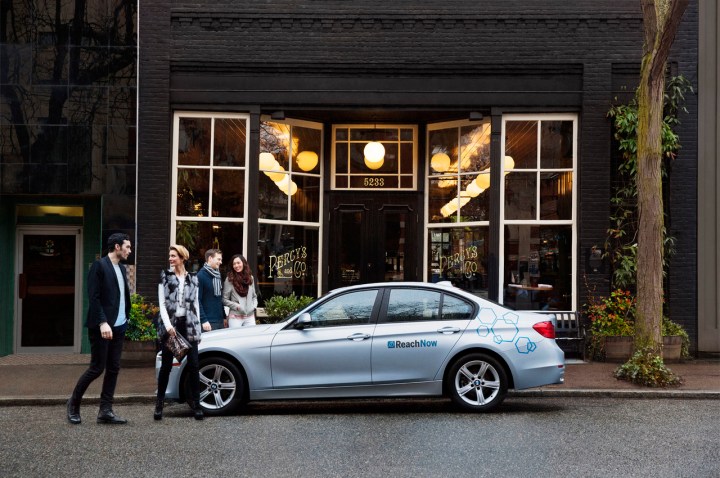
We were intrigued by the premise of on-demand mobility with a luxury focus, so we trekked up to Seattle to give the service a try for ourselves. You can read our full impressions here, but thankfully, the company is now launching right in Digital Trends’ backyard of Portland, Oregon on September 19.
Ahead of that date though, ReachNow is offering a Preview Drive where the one-time membership cost of $39 is waived, meaning the only costs for the time being are 41 cents per minute of driving and 30 cents per minute while parked. That’s a pretty solid deal for Portlanders, but be advised, the registration fee and driving rates will return normal after the introductory period ends.

“As a pioneering city for transportation alternatives, Portland is proud to welcome ReachNow,” said Leah Treat, Director of Portland’s Bureau of Transportation. “On-demand car sharing supports our existing transit and bike infrastructure, helping Portlanders get where they need to go, when they need to be there.”
Read more: BMW’s ReachNow service is flooding Seattle with cheap, easy transportation
Using ReachNow is straightforward — simply download the app from the Apple App Store or Google Play, after which you register your information and initiate a two-minute approval process. After that, you find a car within the “Home Area” (currently the Convention Center, Central Eastside, Downtown, and the Pearl District), drive, and return it within the Home Area when you’re done.
The BMW 3 Series, Mini Clubman, and two-door hardtop Mini will be the first vehicles to launch as a part of ReachNow’s Portland fleet, but the BMW i3 and X1 crossover will be added by the end of the year. According to brand CEO Steve Banfield, some 260 cars will be on the streets by the official launch date.
Editors' Recommendations
- Samsung Galaxy S21 will be a digital key for Audi, BMW, Ford, Genesis cars
- Volkswagen is willing to share its electric car tech with BMW and others


